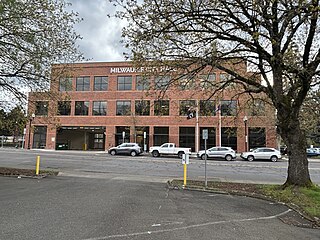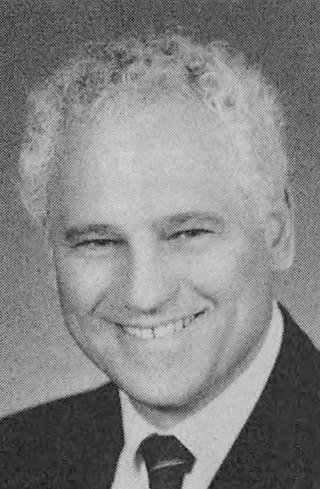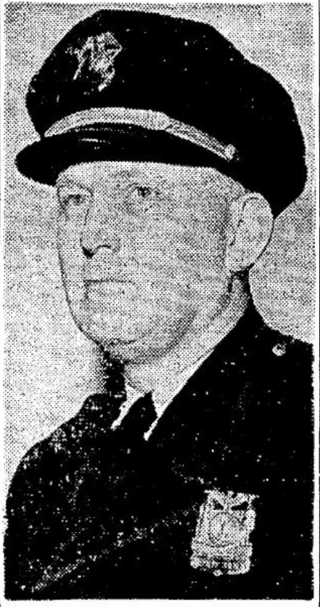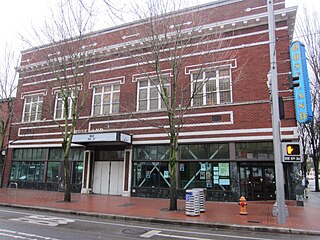
Portland is the most populous city in the U.S. state of Oregon, located in the Pacific Northwest region. Situated in the northwestern area of the state at the confluence of the Willamette and Columbia rivers, it is the county seat of Multnomah County, Oregon's most populous county. As of 2020, Portland's population was 652,503, making it the 26th-most populous city in the United States, the sixth-most populous on the West Coast, and the second-most populous in the Pacific Northwest, after Seattle. Approximately 2.5 million people live in the Portland metropolitan area, making it the 25th-most populous in the United States. About half of Oregon's population resides within the Portland metro area.

The Metropolitan Area Express (MAX) is a light rail system serving the Portland metropolitan area in the U.S. state of Oregon. Owned and operated by TriMet, it consists of five lines connecting the six sections of Portland; the communities of Beaverton, Clackamas, Gresham, Hillsboro, Milwaukie, and Oak Grove; and Portland International Airport to Portland City Center. Trains run seven days a week with headways of between 30 minutes off-peak and three minutes during rush hours. In 2019, MAX had an average daily ridership of 120,900, or 38.8 million annually. Due to the COVID-19 pandemic, which impacted public transit use globally, annual ridership plummeted, with only 14.8 million riders recorded in 2021.

Milwaukie is a city mostly in Clackamas County, Oregon, United States; a very small portion of the city extends into Multnomah County. The population was 21,119 at the 2020 census. Founded in 1847 on the banks of the Willamette River, the city, known as the Dogwood City of the West, was incorporated in 1903 and is the birthplace of the Bing cherry. The city is now a suburb of Portland and also adjoins the unincorporated areas of Clackamas and Oak Grove.

Neil Edward Goldschmidt was an American businessman and Democratic politician from the state of Oregon who held local, state, and federal offices over three decades. After serving as mayor of Portland, Oregon, the United States Secretary of Transportation under President Jimmy Carter and governor of Oregon, Goldschmidt was at one time considered the most powerful and influential figure in Oregon's politics. In 2004, Goldschmidt's career and legacy were irreparably damaged by revelations of the ongoing sexual abuse of a young teenage girl beginning in 1973, during his first term as mayor of Portland.

John Elwood "Bud" Clark Jr. was an American businessman and politician who served as the 48th mayor of Portland, Oregon, from 1985 to 1992. A left-leaning populist with little political experience before his mayoral bid, he was one of Portland's most colorful political figures.

The MAX Yellow Line is a light rail line serving Portland, Oregon, United States. Operated by TriMet as part of the MAX Light Rail system, it connects North Portland, Portland City Center, and Portland State University (PSU). The line serves 17 stations; it runs north–south from Expo Center station to PSU South/Southwest 6th and College station, interlining with the Green and Orange lines within the Portland Transit Mall. Service runs for 21 hours per day with headways of up to 15 minutes. The Yellow Line is the fourth-busiest service in the MAX system; it carried an average 12,960 riders per weekday in September 2019.

The MAX Green Line is a light rail service in Portland, Oregon, United States, operated by TriMet as part of the MAX Light Rail system. It is 15 miles (24.1 km) long and serves 30 stations from the PSU South stations to Clackamas Town Center Transit Center; it connects Portland State University (PSU), Portland City Center, Northeast Portland, Southeast Portland, and Clackamas. The Green Line is the only service that shares parts of its route with the four other MAX services, sharing the Portland Transit Mall with the Orange and Yellow lines and the Banfield segment of the Eastside MAX with the Blue and Red lines. Southbound from Gateway/Northeast 99th Avenue Transit Center, it operates the Interstate 205 (I-205) segment through to Clackamas Town Center. Service runs for approximately 211⁄2 hours daily with a headway of 15 minutes during most of the day. It is the third-busiest line in the system, carrying an average of 19,160 riders per day on weekdays in September 2019.

The MAX Orange Line is a light rail line serving the Portland metropolitan area in the U.S. state of Oregon. Operated by TriMet as part of the MAX Light Rail system, it connects Portland City Center, Portland State University (PSU), Southeast Portland, Milwaukie, and Oak Grove. The line serves 17 stations and runs for 201⁄2 hours per day with headways of up to 15 minutes. It averaged 3,480 daily weekday riders in September 2020.

"Diamond" Jim Purcell was an officer, chief detective, and then the Chief of Police in Portland, Oregon from January 1, 1953 to December 31, 1956.

Ward Francis Weaver III is an American convicted murderer. He is serving a life sentence without the possibility of parole for sexual assault, rape, attempted murder, and the murders of Ashley Pond and Miranda Gaddis in Oregon City, Oregon.
Under Suspicion is an American police drama television series set in Portland, Oregon. It was created by Jacqueline Zambrano. Its episodes were broadcast on the CBS network from September 16, 1994, to March 10, 1995. Though short-lived, the show premiered to fairly strong reviews, which praised lead Karen Sillas's performance and observed that the show functioned as a kind of Americanized Prime Suspect.

James Michael Francke was an American judge from New Mexico and director of the state's Corrections Department, the governmental bureau which manages prisons, inmates, and parolees. He was later appointed by then-Oregon governor Neil Goldschmidt to oversee a plan to double the state's inmate capacity as director of Oregon's Department of Corrections. On January 18, 1989, his body was discovered outside the department's office building in Salem; an autopsy determined he had been murdered the night before. A local petty criminal was eventually tried and convicted for the crime, and sentenced to life in prison without parole. However, the convicted killer maintains his innocence, and several conspiracy theories have been advocated, claiming that the killing was a murder for hire conducted by corrupt state prison officials threatened by an investigation Francke was conducting into prison mismanagement. In 2019, the man convicted for the murder of Francke was released from prison after his murder conviction was thrown out by a federal magistrate in Portland, who ruled he did not receive a fair trial; four years later, he was given a full release when his indictment by the county was dismissed with prejudice and his murder conviction was expunged from the record.
The Pamplin Media Group (PMG) is a media conglomerate owned by Carpenter Media Group and operating primarily in the Portland metropolitan area in the U.S. state of Oregon. Robert B. Pamplin, Jr. founded the company in 2001 and sold it to Carpenter in 2024. As of 2019, the company owns 25 newspapers and employs 200 people.

Tilikum Crossing, Bridge of the People is a cable-stayed bridge across the Willamette River in Portland, Oregon, United States. It was designed by TriMet, the Portland metropolitan area's regional transit authority, for its MAX Orange Line light rail passenger trains. The bridge also serves city buses and the Portland Streetcar, as well as bicycles, pedestrians, and emergency vehicles. Private cars and trucks are not permitted on the bridge. It is the first major bridge in the U.S. that was designed to allow access to transit vehicles, cyclists and pedestrians but not cars.
The rate of crime in Oregon, at least since 1985, has varied from below the United States national average to slightly above, depending on if one is looking at violent crime or property crime statistics. The violent crime rate remained below the national average every year between 1985 and 2022, while property crime generally remained above the average during that time. Every year between 2011 and 2020, Oregon maintained one of the 20 lowest violent crime rates in the United States. However, some of the most notorious serial killers in U.S. history were known for killing or operating in Oregon, including perhaps the most famous, Ted Bundy, as well as the second most prolific in terms of confirmed murders, Gary Ridgway, among many others.

The Roseland Theater, sometimes called the Roseland Theater and Grill, is a music venue located at 8 Northwest Sixth Avenue in the Old Town Chinatown neighborhood of Portland, Oregon, in the United States. The building was originally a church, constructed by the Apostolic Faith Church in 1922. In 1982, Larry Hurwitz converted the building to a music venue called Starry Night. In 1990, the club's 21-year-old publicity agent was murdered in one of the theater's hallways; Hurwitz was convicted for this murder ten years later. Hurwitz sold the club in 1991, claiming he had lost support from the local music industry. The venue was given its current name during the 1991 ownership transfer. During the 1990s, Double Tee acquired control of the hall's operations, then purchased and renovated the building.

The A and B Loop is a streetcar circle route of the Portland Streetcar system in Portland, Oregon, United States. Operated by Portland Streetcar, Inc. and TriMet, it is made up of two separate services: the 6.1-mile (9.8 km) A Loop, which runs clockwise, and the 6.6-mile (10.6 km) B Loop, which runs counterclockwise. The route travels a loop between the east and west sides of the Willamette River by crossing the Broadway Bridge in the north and Tilikum Crossing in the south.

Wenat was a stern-wheel steamboat that, under the name Swan, was built and operated, briefly, on the Tualatin River, in the state of Oregon. In 1858, Swan was sold, moved to the lower Willamette River, renamed Cowlitz, and placed on a route between Portland, Oregon the Cowlitz River.

On the evening of November 26, 1960, Larry Ralph Peyton and his girlfriend, Beverly Ann Allan, disappeared after having made plans to shop at the Lloyd Center shopping mall in Portland, Oregon, United States. The following day, November 27, Peyton's Ford coupe was found in Forest Park, with his mutilated body inside. Allan was missing from the scene, though her purse and coat were still inside the car. A widespread manhunt ensued over the following two months. In January 1961, a highway crew 30 miles (48 km) outside Portland discovered Allan's partially nude body in a ravine, and it was determined she had been raped and strangled to death.
















